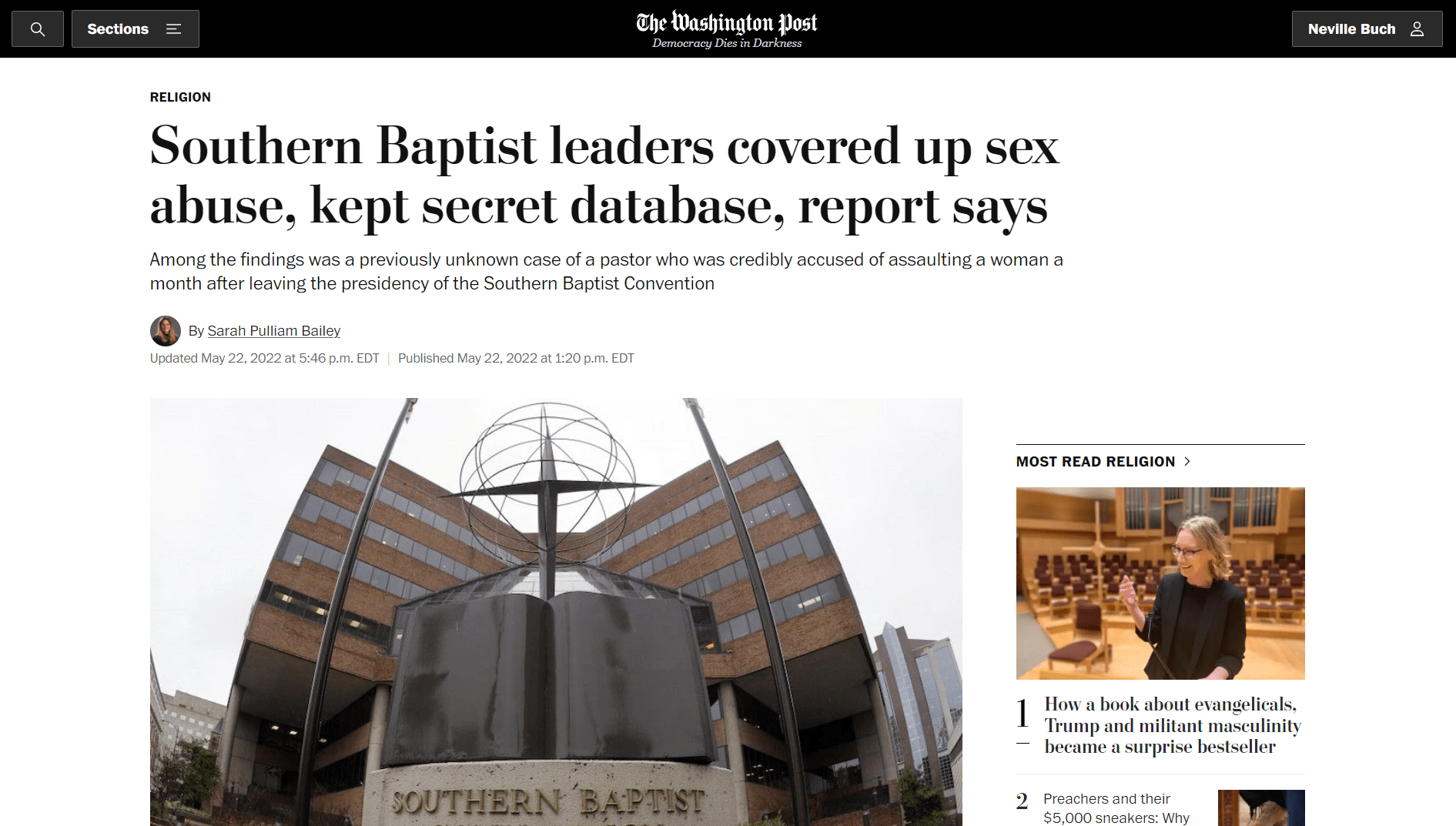It seems that the Southern Baptist Convention is in the news again, and news in the scandal within Hillsong Church, and the fall of Australia’s first and (I cautiously predict) only Pentecostal Prime Minister.
‘Megachurch and Politics’ is a disaster for faith and reason. I could see it 25 years ago, as well as most of my scholarly colleagues, including the international-renowned theologian Charles Ringma, the international-renowned radical Christian activist Dave Andrews, and the internationally-published, ethicist and study-in-religion scholar, Trevor Jordan. All from Queensland where the megachurch phenomena for Australia was given birth.
This is what I documented and published as a history doctorate in 1995:
Anti-intellectualism is a state of mind which suspects complex and abstract concepts in favour of dogmatic and poorly-constructed beliefs. It has generally involved the slander, censorship, or prohibition of certain academics and their writings. Richard Hofstadter identifies anti-intellectualism as a significant part of the American culture in Anti-intellectualism in American Life. Sydney Alhstrom sees anti-intellectualism as a corollary of American revivalism in A Religious History of the American People, and recounts that large elements of the Southern Baptist Convention (SBC), in their opposition to higher education, worked havoc in the academic program of Southern Theological Seminary in Kentucky. The SBC has had a history of forcing academics out of their seminary positions, often due to academics critical study of the scriptures and Church history.
…
The editor of the Queensland Baptist, and President of the Baptist Union of Queensland (1952-53), Rev. A.J.M. Howard, had a streak of anti-intellectualism which was characteristic of Southern Baptist fundamentalists. Howard showed a distrust of modern educational processes, as he expressed in 1964:
“Whatever else there could be to shake faith, or undermine such salvation, could never come from inside the proven provinces of God’s revealed truth, and must be imported from a world hostile to faith…”
“To put theology on a basis with other sciences would be to immediately invalidate revelation on all fronts, and reduce it to a science of human discovery. Theological training is almost diametrically opposed to the ordinary processes of worldly education…”
“Modern education leans hard on reason; theologically a student for the ministry is learning how insufficient mere reason is and how devastatingly authoritative is revelation.”It was these anti-intellectual attitudes in the Baptist Union which led to particular problems in the Baptist Theological College. When Rev. T.C. Warriner, Principal of the Baptist College, wrote on the task of the college in the Queensland Baptist, he faced considerable resistance.
One critic charged:
“One fears that the outlook taken by those who prepare the training for the minister is profoundly influenced by the circle of intelligentsia in which they move, and the needs of the people are not recognised. A figment of the imagination alone would tell us that our main contact is with the philosophically-minded person, the fact being to the contrary; that most people in our pews to-day are lazy-minded and need the message in the simplest of terms.”
For educated persons, it does not take much to understand that the megachurch rationale here is nonsense. I forewarned this craziness as Australian history.
In 25 years did anyone listen to me?
https://www.washingtonpost.com/religion/2022/05/22/southern-baptist-sex-abuse-report/
RECOMMENDED READING
Scholarly Publications
(with Robert Long). The Americanisation of Christian Education in Queensland: A study of the Sunday School and New Christian School Movements 1945-96. Australian Religion Studies Review, Volume 9, No 2 (1996).
Finding Peace from the Culture-History War: A Historiographical Message for the Times. Academia Letters, Article 1916, (2021). https://doi.org/10.20935/AL1916.
Economic Rationalism and University Course Pricing 1989-2020, for Australian Policy and History, published online, August 3, 2020.
Review Essay of Rocha, Christina, Mark Hutchinson and Kathleen Openshaw (eds.), Australian Pentecostal and Charismatic Movements, Brill Publications, 2020, p. 304, ISBN 9789004425781, Journal for the Academic Study of Religion, Volume 34, No 2 (2021).
The Intellectual Ethos of Charles Strong in Queensland 1855-1917, in Marion Maddox, Charles Strong’s Australian Church: Christian Social Activism, 1885–1917, University of Melbourne Press, 2021.
Manuscripts Only
Protestant Churches and their Attitude to Public Issues in Queensland 1919-1939, Honours Thesis, Department of History, University of Queensland, November 1987.
American Influence on Protestantism in Queensland since 1945, Ph.D thesis, Department of History, University of Queensland, August 1994.
Americanizing Queensland Protestantism, Studying Australian Christianity 1995 Conference, Robert Menzies College, Macquarie University, July 1995.
The Significance of the American Invasion for Australian Churches: A Preliminary Examination, War’s End Conference (Queensland Studies Centre, Griffith University), University Hall, James Cook University, July 1995.
‘…many distractions confronting the Church’: The Responses of Protestant Religion to Popular Culture in Queensland 1919-1969. Everyday Wonders Popular Culture: Past and Present 10th International Conference, Crest Hotel, Brisbane, June 1997.
Defining a Public University in the Entrepreneurial Age, Australian Network of Higher Education Researcher Conference, University House, Australian National University, December 1999.
‘Before and After 1989: The Conceptual Schemas, Christian Education, and Queensland Society’, originally for J. M. Luetz, & B. Green (Eds.), Mills Institute, Manuscript for Christian Education—Reason and Relevance. 2018
Politics in the Age of Uncertainty: Anti-intellectualism, Expertise, and the Technological Agenda in Queensland Politics, 1911-2011, a paper of local-regional relevance, 2021 Australian Political Studies Association Annual Conference, 21 September 2021.
Politics, ScoMo’s Pentecostalism, and Indigenous Philosophy (or ScoMo Native Pentecostalism), Sea of Faith Brisbane CBD Group, 17 October 2021.
Neville Buch
Latest posts by Neville Buch (see all)
- J. D. Vance’s Insult to America is to Propagandize American Modernism - July 26, 2024
- Why both the two majority Australian political parties get it wrong, and why Australia is following the United States into ‘Higher Education’ idiocy - July 23, 2024
- Populist Nationalism Will Not Deliver; We have been Here Before, many times… - July 20, 2024

